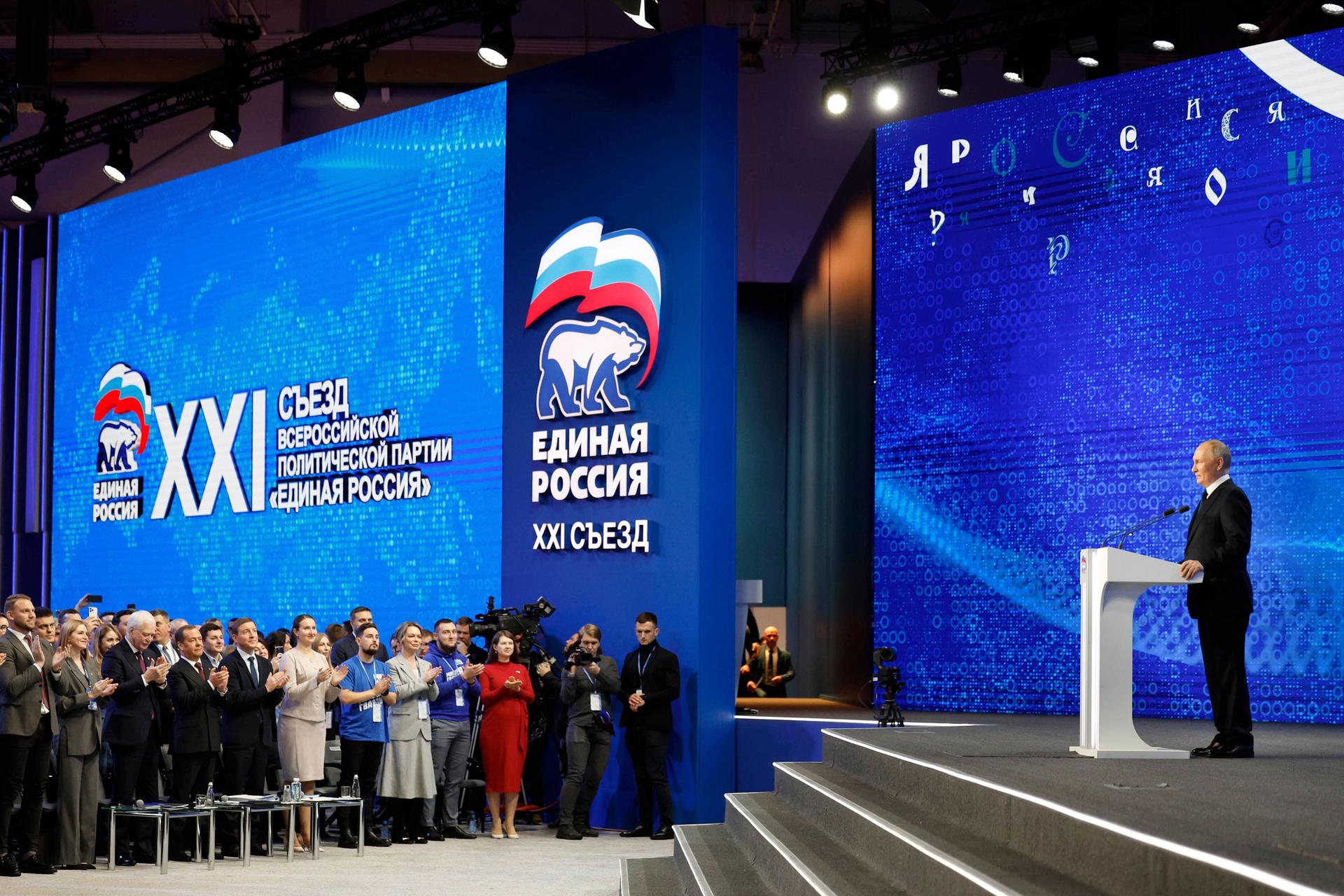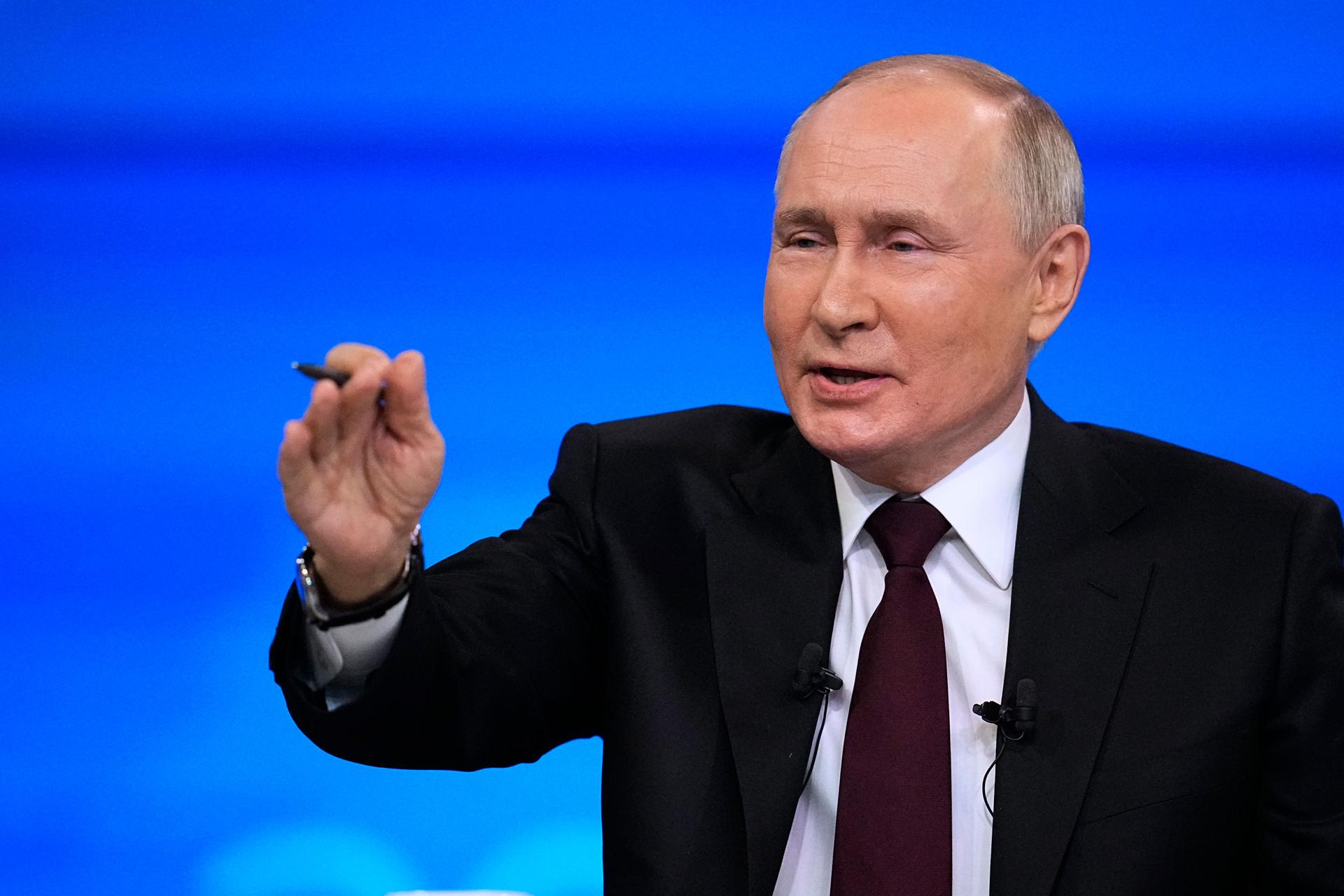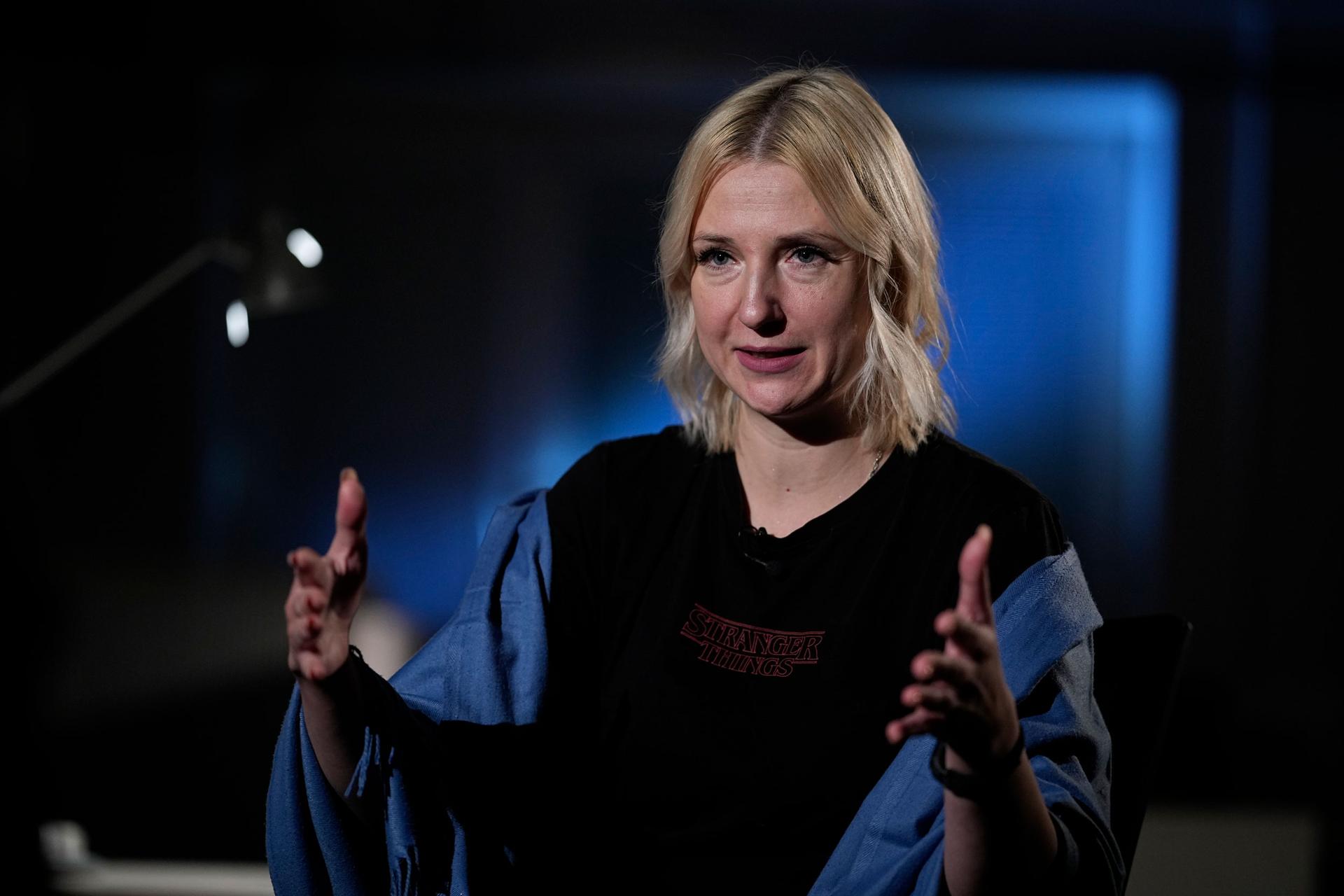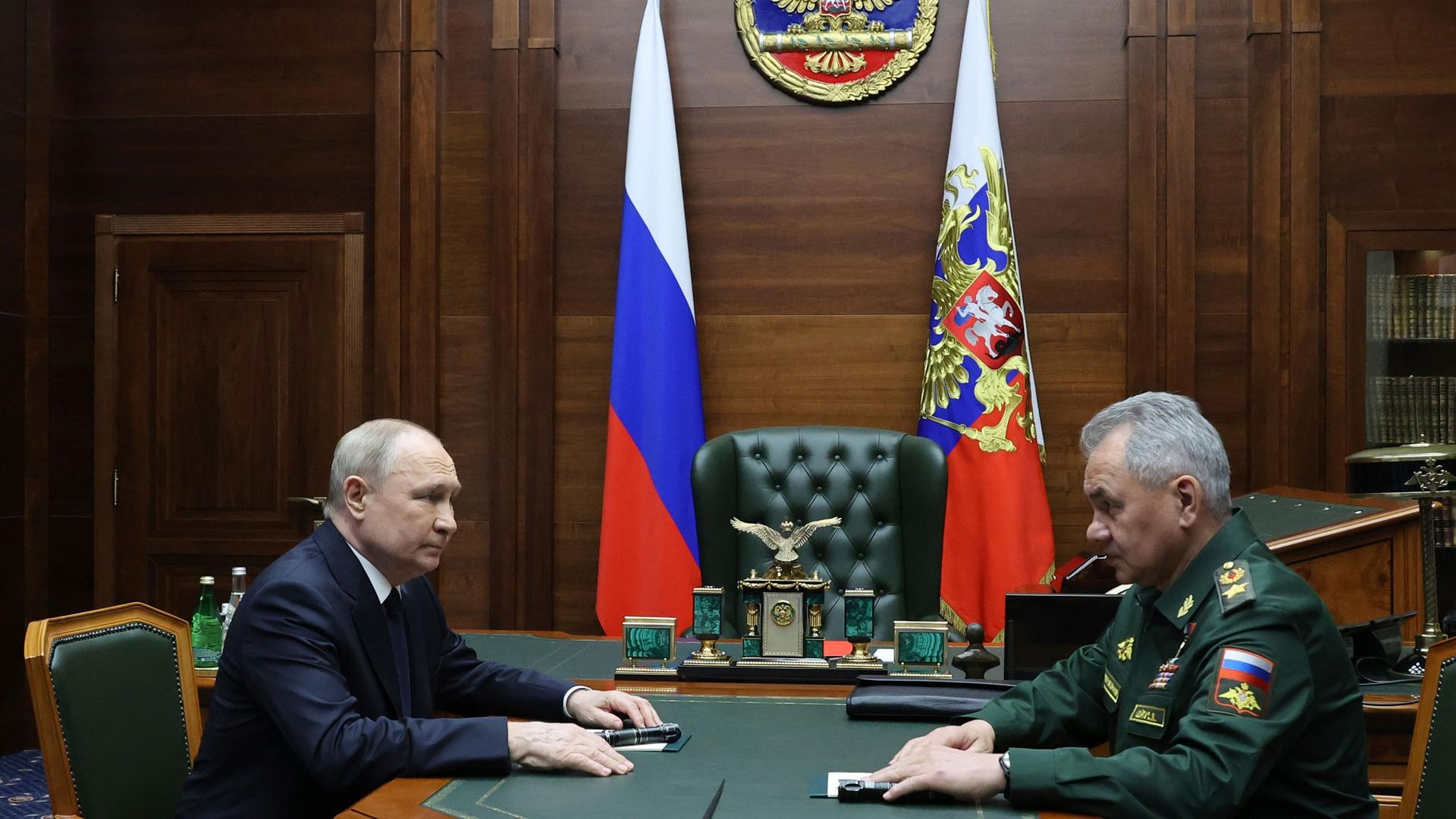Earlier this month, Russian President Vladimir Putin hosted a ceremony at the Kremlin where he awarded medals to Russian soldiers who fought in Ukraine.
After the ceremony, Putin announced that he would run for reelection. The leader has been in power either as president or prime minister since 1999.
Francis Scarr is a journalist with BBC Monitoring, where he follows Russian state media and watched the ceremony online. He described an exchange between a Russian lieutenant colonel and the president that led to the election announcement.
“[Lt. Col.] Artyom Zhoga approached Putin in what was meant to be a kind of spontaneous address and called for Putin to run again for election,” Scarr said.
“Putin acted as if he was surprised by this and said that he had different thoughts at different times, but ultimately, the time has come for him to make the decision, and yes, he agrees that he’s going to run for president, again for a fifth term in office.”
This exchange was set up to look spontaneous — but it was clearly staged. And everyone already knows that Putin plans on running for and remaining president.
His political party, United Russia, has unanimously nominated Putin as their presidential candidate for the upcoming election in March 2024.

But despite that, this staged scene has a purpose.
“This is kind of a consistent narrative since 2012. Every single time that Putin runs, he claims he cannot do anything else given how challenging times are,” said Maria Snegovaya, a senior fellow at the Center for Strategic and International Studies.
“The reluctant leader, you know, in his wisdom and foresight, understanding all the burden that his tough job entails, and the begging and pleading groups from the bottom who really want him to stay … it’s just that this time around, there’s a military aspect here which is very pronounced,” she added.
Having a military official ask him to run adds a sense of urgency. It sends the message that only Putin can lead Russia during this time of war.
“This is the way in which the system re-legitimizes itself,” said Ekaterina Schulmann, a political scientist with the Berlin-based Carnegie Russia Eurasia Center.
“It is an exercise for the collective bureaucracy, for the state apparatus. They need to show that they can perform. That they are both loyal and effective.”

With an authoritative government, an election is a way to test the system, Schulmann added. The government bureaucracy needs to produce results without any surprises. And voters who depend on the state budget are compelled to participate.
“They are directly dependent on the state. They need to show up and vote. The rest of the people need to stay away from this election by being assured that the result is already known, there’s no point in participating, and the system is so strong and stable that there is no point in protesting,” she said.
Most Russian politicians who are opposed to Putin are either in exile or in prison.
But despite the political repression, Yekaterina Duntsova, a lawyer, journalist and mother of three from Rzhev, has declared that she is running against Putin. She isn’t a household name in Russia, but she’s not new to politics — she served as a city council deputy for three years.

In a campaign video posted by her team on social media, Duntsova asks a series of questions to viewers:
“What will happen with our education?” she asks. “And with the internet in Russia? When will the special military operation end? I ask myself, what future do my kids have in general? Because I don’t have good answers to any of these questions. No one does.”
She said Russia’s future depends solely on Putin.
“Our future belongs to him, but it should belong to us,” she said. “And that’s why I’m running for President of Russia, so that each of us, our children, and our country, can have a future.”
To actually appear on the ballot, though, Duntsova must collect 300,000 signatures — not an easy task.
Even expressing support for an anti-war politician can be dangerous, but that’s not deterring her.
“Families left without a father, without a brother, without husbands and sons, are struggling,” she said, speaking with the BBC.
She also said that people do not express these sentiments in public but are tired of what’s happening in Russia.
Schulmann, the Berlin-based political scientist, said that Duntsova’s campaign shows that civil society in Russia isn’t completely dead.
“It’s heartwarming to see that there are such people left in the country. Of course, what she is doing is highly dangerous. She’s been already invited to the regional prosecutor’s office for a talk, to just have a ‘friendly chat,’” Schulmann said.
Despite these attempts at intimidation, Schulmann believes that she’s still campaigning because Kremlin officials don’t see her as a threat.
“What I think she’s trying to do is a pre-campaign campaign, knowing that she won’t be allowed to appear on the ballot, you at least can talk to people, and you can achieve visibility. In Russia, this visibility is wrought with deadly danger, so it’s a very brave thing to do.”
Schulmann said that the outcome of this election is predetermined, but it’s hard to predict what will happen with this government.
She said all autocracies are stable — until they’re not.
